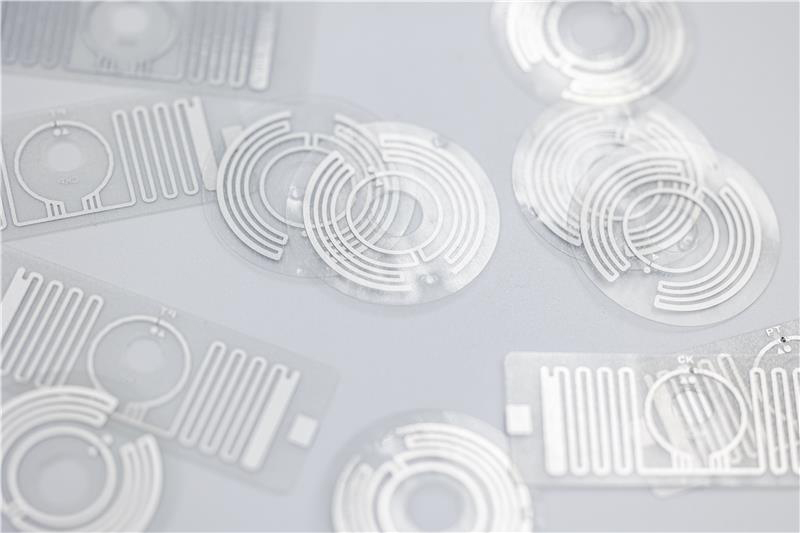保点新闻
How Checkpoint IML RFID labels could help you launch reusable fast food packaging and tableware
Redesigning single-use plastic packaging for sustainability can be challenging. Unfortunately, if you want to avoid high fees that are likely to be implemented under the upcoming EU Packaging and Packaging Waste Regulation (EU PPWR), single-use, non-recyclable virgin plastic food packaging has to go! Luckily, Checkpoint Systems intelligent labeling experts redeveloped existing technology to help you make the change.
Checkpoint recently finished a successful ‘reusable fast food packaging’ pilot with a popular global fast food chain, using our in-mold RFID labels in 1,200 of their restaurants. This post explores everything you need to know about this technology, how it works, and how it could help companies move towards more sustainable practices.
What is an In-Mold Label?
The In-Mold Label (IML) is an RFID inlay designed to be ‘over-molded’ or ‘in-molded’ into plastic packaging and tableware. This means it can sit safely within or on top of the packaging and is robust enough to withstand the manufacturing process.
IML RFID labels work nicely with reusable packaging materials and are water, heat, and detergent resistant. To ensure their quality and performance, we use our own RFID inlays, designed and manufactured in-house. We have successfully integrated two of these inlays in our production process: the round Pali and the rectangular Vortex. However, any of our RAIN RFID inlays are fully compatible with the molding process, giving you the flexibility to choose the one that best suits your manufacturing method and the size or shape of your packaging.

How do IML RFID labels work?
The secret behind the success of our reusable plastic packaging pilot is radio frequency identification (RFID). This technology uses high-frequency radio waves to transmit and store data to identify and track unique objects.
With RFID technology, you can scan your reusable packaging per item, box, or pallet, and get centrally stored data in real-time. This enables you to minimize waste, streamline processes, and effortlessly generate data for more informed and sustainable decisions.
Fast food restaurants, catering companies, and eat-in deli counters could use these IML RFID labels to create eat-in tableware that can be collected, sanitized, and reused to help minimize the quantity of single-use packaging being manufactured. With this food labels applications, you’ll be able to reduce waste, save money, improve RFID loss prevention and give a seamless customer experience.
The advantages of IML RFID labels for fast food packaging
Minimize waste
The European Green Deal focuses on moving the economy away from a linear ‘take-make-waste’ model and towards a more circular ‘reduce, reuse, recycle’ one. IML RFID labels empower you to create reusable packaging solution that you can fully track, regulate, and efficiently utilize. You’ll get up to 99% inventory accuracy, making it easier to keep ordering volumes under control and make full use of the assets you already have, thereby reducing waste and saving money.
The transparency of RFID inventory management
IML RFID labels give you real-time visibility and traceability with up to 99% stock accuracy throughout the entire supply chain. It even allows you to trace and locate nearby items that have been accidentally discarded so you can minimize shrinkage and maximize usability. This is vital when you consider the cost investment that comes with the move to reusable packaging and RFID implementation.
Optimize processes
IML RFID labels give you a whole new way to streamline your processes effectively. Real-time data collection—including cycle time, turnover rate, and container utilization—gives you valuable insights that can be used to optimize your processes and improve the customer experience.
Keep on top of regulations
Upcoming sustainability regulations require producers, retailers, and manufacturers to gather and maintain accurate product and packaging information. IML RFID labels are a great way to keep on top of every facet of information regarding your packaging, like manufacturing origin, materials, food safety certificates, and number of uses. All this data is protected via encryption and controlled access.
Get a slice of the action This technology is useful in addressing some of the challenges posed by new sustainability regulations, and we are here to help you find the right RFID solution. If you want to learn more about IML RFID tags, you can explore Checkpoint RFID portfolio to see the different inlays available. You can also contact Checkpoint China team, which is experienced in designing, testing and implementing RFID solutions globally.